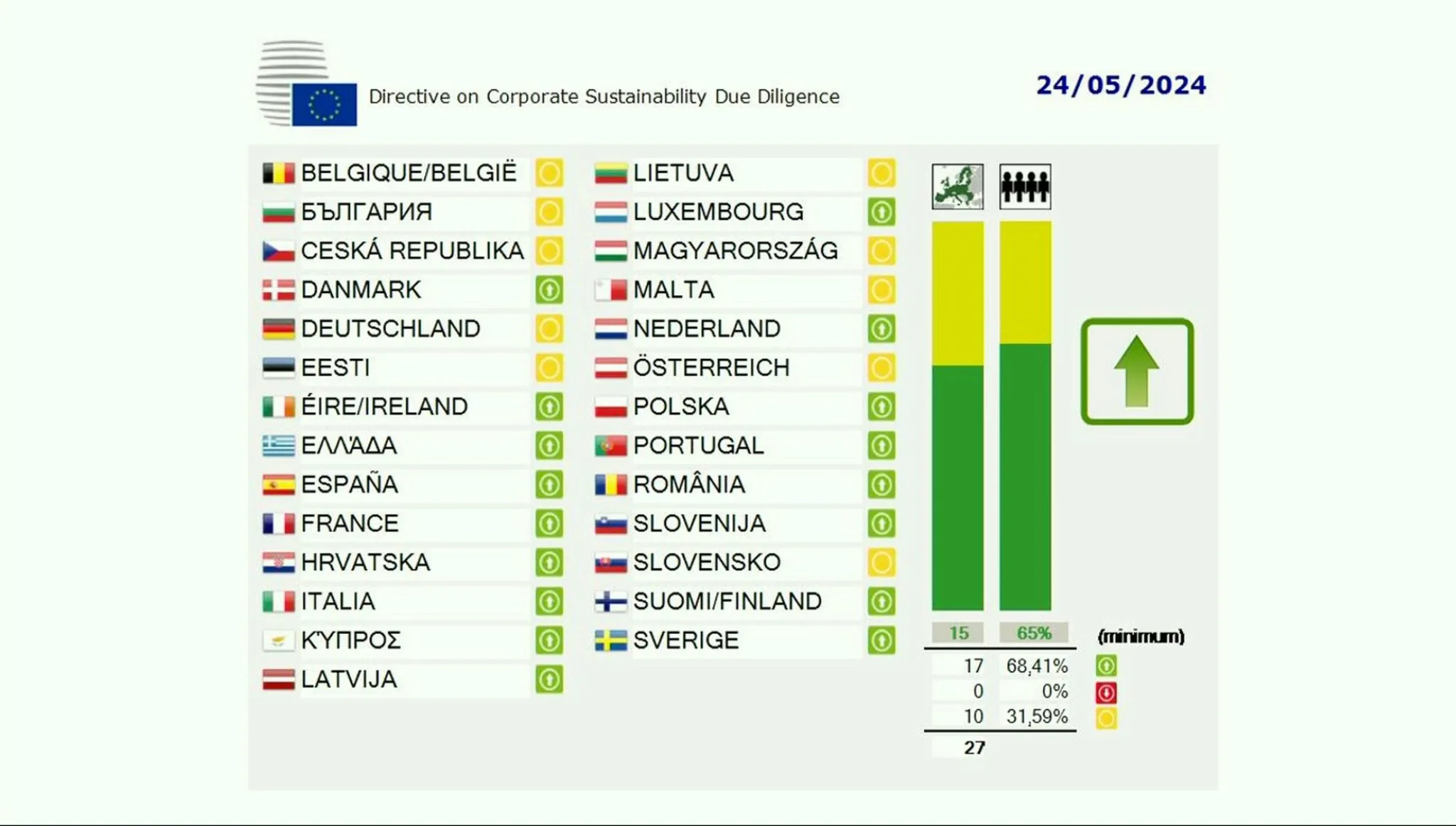Brussels – The saga of the European directive on corporate sustainability due diligence has come to a happy ending. Today (May 24), the EU Council gave the final green light to introduce new obligations for large companies regarding the negative impacts of their activities on human rights and the environment.
The text was approved in a profoundly amended form in inter-institutional trilogues in December and then watered down by the Council of the EU due to resistance from some member states. Despite a troubled legislative process, the European Parliament formally approved the directive in late April and – with today’s final passage – will now be published in the Official Journal of the European Union and enter into force on the 20th day following its publication. No member state opposed the final approval, but ten EU countries abstained: Belgium, Bulgaria, Czech Republic, Germany, Estonia, Lithuania, Hungary, Malta, Austria, and Slovenia.

“Large companies must take their responsibilities in the transition towards a greener economy and more social justice. It is a concrete and significant step towards a better place to live for everyone,” said Pierre-Yves Dermagne, Belgian deputy prime minister and minister of Economy and Employment on behalf of the Belgian rotating presidency of the EU Council.
The rules concern the companies’ operations and the activities of their subsidiaries and business partners along the companies’ chain of activities. The directive will apply with a differentiated timetable depending on the size of the companies. Those with more than 5 thousand employees and 1,500 million euros in turnover will be required to comply in three years after the directive comes into force, four years after the directive comes into force for companies with more than 3 thousand employees and 900 million euros in turnover, and five years after the directive comes into force for companies with more than 1 thousand employees and 450 million euros in turnover.
Reacting to Council agreement, BusinessEurope Director General Markus J. Beyrer said: “Harmonised transposition and clear guidance for companies will be key for implementation”.
“The new due diligence rules will be the biggest corporate law reform in EU’s history setting extensive obligations, liabilities and sanctions on European companies. We expect – writes Beyer in a note – the transposition to deliver one single rulebook as opposed to 27 different ones. Clarity and uniformity of the rules at national level will be essential as unparalleled corporate resources will have to be diverted to compliance. Support and guidance from the Commission and national authorities will be vital for companies of all sizes to be prepared and equipped. Without this mix of ingredients this impactful legislation will fail to meet its goals.”
English version by the Translation Service of Withub





